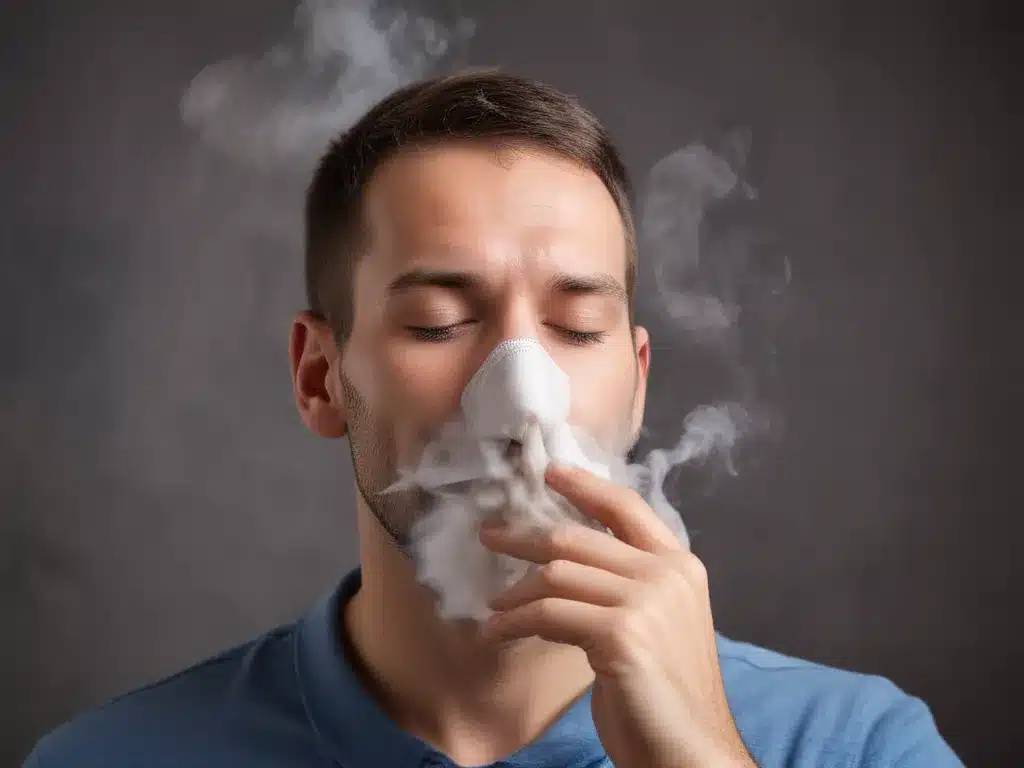Introduction
Smoke odors can linger long after the fire has been extinguished, causing discomfort and potential health risks. Whether it’s from a small kitchen fire or a larger-scale incident, eliminating smoke odors requires a thorough and systematic approach. In this comprehensive guide, I will delve into the various aspects of smoke odor elimination, including the sources, the impact, and the effective methods to tackle this persistent issue.
Understanding Smoke Odors
What are Smoke Odors?
Smoke odors are the unpleasant and pungent smells that result from the combustion of organic materials, such as wood, textiles, plastics, and other household items. These odors can be caused by a variety of sources, including:
- House fires
- Cigarette smoke
- Cooking incidents
- Wildfires
- Industrial accidents
Why are Smoke Odors Problematic?
Smoke odors are not just an annoyance; they can also pose potential health risks and property damage concerns. Some of the key issues associated with smoke odors include:
- Respiratory irritation
- Headaches and nausea
- Contamination of household surfaces and furnishings
- Persistent and pervasive smell throughout the property
The Impact of Smoke Odors
Emotional and Psychological Effects
Smoke odors can have a significant emotional and psychological impact on individuals, especially those who have experienced a traumatic fire event. The lingering smell can trigger unpleasant memories, anxiety, and stress, making it difficult to move on from the incident.
Property Value
Smoke odors can also affect the value of a property, as potential buyers or renters may be deterred by the persistent smell. This can make it challenging to sell or lease a property that has been affected by smoke odors.
Health Concerns
Exposure to smoke odors can lead to various health issues, particularly for individuals with respiratory conditions, allergies, or sensitivities. Prolonged exposure can exacerbate existing health problems or contribute to the development of new ones.
Tackling Smoke Odors
DIY Methods
While some DIY methods, such as using baking soda, vinegar, or commercial odor eliminators, may provide temporary relief, they often fail to address the root cause of the smoke odors fully. These methods may mask the odor temporarily, but the smell is likely to return once the treatment wears off.
Professional Smoke Odor Removal Services
Engaging the services of a professional smoke odor removal company is often the most effective and comprehensive solution. These companies employ specialized equipment and techniques to address the issue at its source, ensuring lasting results.
One such company is Adam Cleaning, which offers biohazard and smoke odor removal services. Their team of experienced professionals utilizes advanced methods, including ozone generators, thermal fogging, and specialized cleaning agents, to effectively eliminate smoke odors from affected areas.
Ozone Generators
Ozone generators are powerful tools used by professional smoke odor removal companies. These devices produce ozone, a highly reactive gas that neutralizes and breaks down odor molecules at their source. Ozone generators are particularly effective in penetrating porous surfaces, such as carpets, drywall, and furniture, where smoke odors can linger.
Thermal Fogging
Thermal fogging is another technique employed by professionals to combat smoke odors. This process involves dispersing a deodorizing solution in a dense, dry fog that penetrates even the most inaccessible areas. The fog carries the deodorizing agents deep into porous materials, effectively neutralizing odors at their source.
Specialized Cleaning Agents
In addition to ozone generators and thermal fogging, professional smoke odor removal companies often use specialized cleaning agents designed to break down and remove smoke residues. These agents are formulated to target the specific compounds found in smoke, ensuring a thorough and effective cleaning process.
Preventive Measures
While removing smoke odors after an incident is crucial, taking preventive measures can help minimize the impact and spread of these odors. Some preventive steps include:
Regular Maintenance and Cleaning
Keeping your home or property well-maintained and regularly cleaned can help reduce the buildup of smoke residues and odors. Regular vacuuming, dusting, and cleaning of surfaces can prevent smoke particles from settling and becoming more difficult to remove over time.
Proper Ventilation
Ensuring adequate ventilation in your home or property can help dissipate smoke odors and prevent them from becoming entrenched in surfaces and materials. Use exhaust fans, open windows, and consider installing air filtration systems to improve air quality.
Fire Safety Measures
Implementing fire safety measures, such as installing smoke detectors, fire extinguishers, and practicing fire evacuation plans, can help minimize the risk of fires and reduce the likelihood of smoke odors in the first place.
Conclusion
Smoke odors can be a persistent and challenging issue, but with the right approach and professional assistance, they can be effectively eliminated. By understanding the sources and impact of smoke odors, and employing proven methods like ozone generators, thermal fogging, and specialized cleaning agents, professional smoke odor removal companies can restore your property to a fresh and odor-free state.
If you’re dealing with smoke odors in your home or business, consider reaching out to a reputable company like Adam Cleaning for their biohazard and smoke odor removal services. Their expertise and advanced techniques can provide a comprehensive solution, ensuring a safe and odor-free environment for you and your loved ones.







